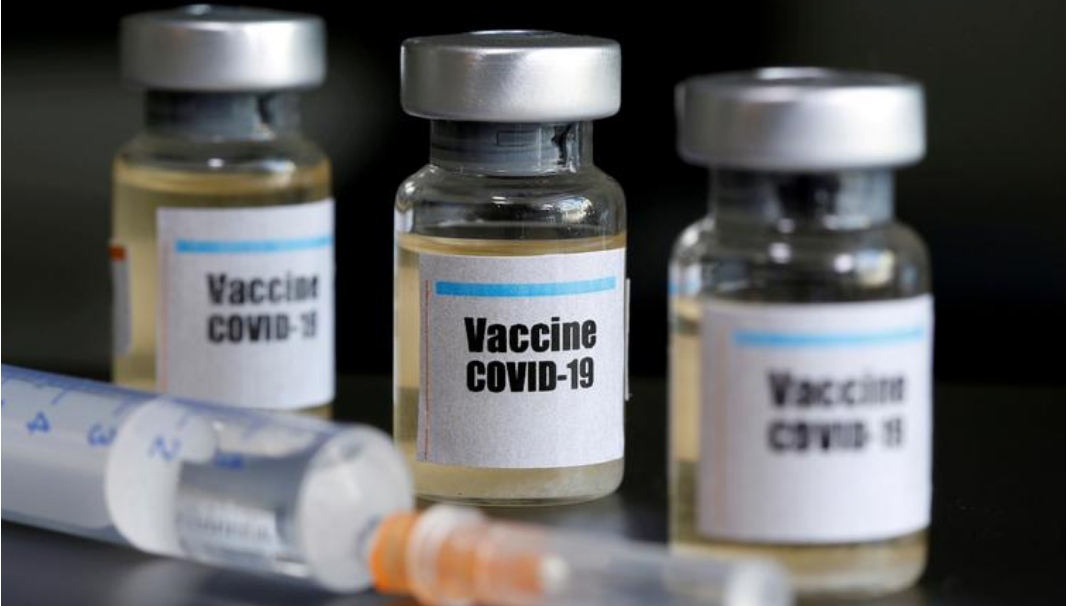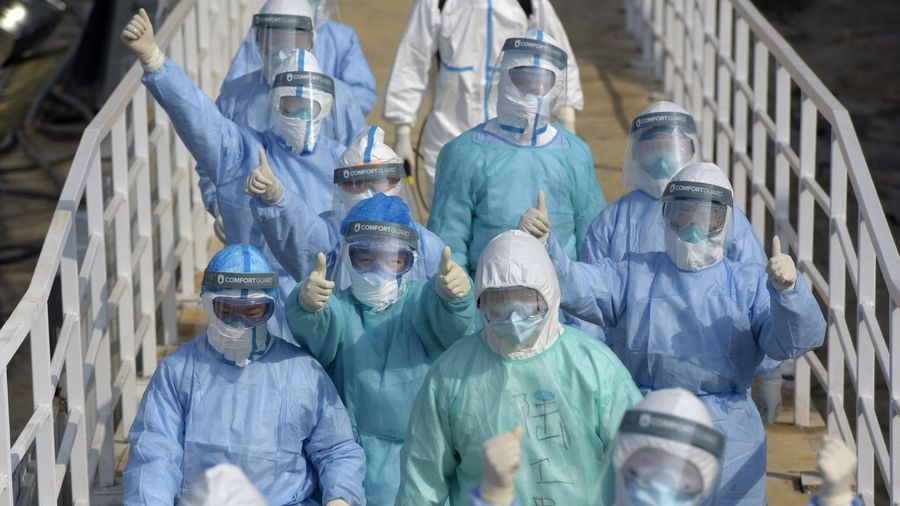
Small bottles labeled with a "Vaccine COVID-19" sticker and a medical syringe are seen in this illustration taken on April 10, 2020. /Reuters
Small bottles labeled with a "Vaccine COVID-19" sticker and a medical syringe are seen in this illustration taken on April 10, 2020. /Reuters
Editor's note: Liu Chunsheng is an associate professor at the Beijing-based Central University of Finance and Economics. The article reflects the author's opinions and not necessarily the views of CGTN.
A recent study by CGTN Think Tank, based on data from the websites of Johns Hopkins University, Our World in Data, Pharmaceutical Technology and Nikkei Asia, reviews the influencing factors of the cumulative number of the confirmed COVID-19 cases, new cases and hospitalizations around the world, and has found that the outbreak has shown a few new characteristics.
People still need to remain vigilant about the threat of COVID-19 with new variants becoming rampant around the world. Effective prevention policies and a more balanced vaccination strategy are key to curbing the pandemic.
COVID-19's new variants accelerate its outbreak around the world
According to the latest statistics of the World Health Organization (WHO), new variants of COVID-19 are constantly being discovered, and there are more than 1,000 types in the world. Many new variants will be eliminated naturally, but some variants may be more infectious or more likely to cause severe illness.
Among them, the Delta variant has spread to more than 104 countries. It is expected that it will soon become the most prevalent variant in the world. The public health crisis facing the world is worsening, and the threat to life and overall economic recovery is increasing.
According to the data from the U.S. Centers for Disease Control and Prevention, the recent average daily increase number of new COVID-19 cases in the United States has continued to rebound, and the current average number of new hospitalized cases is about 13,200, which is higher than the 12,000 at the end of June. At present, more than half of the new cases in the United States are infected with the Delta variant.
The United Kingdom, France, South Africa and other countries have also seen a significant increase in recent infection rates and hospitalization rates due to the Delta variant. In Asia, the COVID-19 outbreak in South Korea and Malaysia has deteriorated rapidly in recent days. Another noteworthy phenomenon is that a patient in Belgium was infected with two new variants at the same time which brings challenges to the prevention and the treatment of the pandemic.
Differences in pandemic prevention policies and COVID-19 rebound caused by imbalanced vaccination
According to the statistics from the Johns Hopkins University, as of July 14, 2021, the country with the largest cumulative number of confirmed cases in the world is still the United States, with a total of more than 34 million.

Medical personnel at Huoshenshan Hospital in Wuhan, central China's Hubei Province, February 4, 2020. /Xinhua
Medical personnel at Huoshenshan Hospital in Wuhan, central China's Hubei Province, February 4, 2020. /Xinhua
The two countries with the least number of new confirmed cases are China and New Zealand. With its special geographic shape and location which reduce the difficulty of pandemic prevention, New Zealand has effectively controlled its confirmed cases number.
In regards to China, its government takes every effort and efficient and rapid measures, such as rapid-detection, community-management in the entire process of pandemic prevention.
China's success proved that the public's support for the fight against the pandemic, the publicity of government policies and the implementation of measures are of vital importance to the prevention of the pandemic.
In addition, the vaccination in different countries around the world is extremely unbalanced. China and the U.S. are far ahead in the number of vaccination. Israel leads the world in terms of vaccination ratio, but the vaccination in most developing countries is not very optimistic.
Therefore, ending the global pandemic is still out of reach. In order to promote the equitable distribution of global vaccines, the two Chinese companies will supply COVAX project with 110 million doses of the vaccines by the end of October 2021, and will continue to supply them for a long time.
The pandemic hits Tokyo Olympics
COVID-19 has cast a shadow over the upcoming Tokyo Olympics. On July 8, Japanese Prime Minister Yoshihide Suga announced that Tokyo would once again enter a state of emergency, which would last from July 12 to August 22. This means that the Tokyo Olympics from July 23 to August 8 will be held in a state of emergency.
To make matters worse, two foreign athletes in the Olympic Village have tested positive for COVID-19. With the opening ceremony approaching, athletes delegations from more than 200 countries and regions will enter Japan in a few days, which will put tremendous pressure on Japan's pandemic prevention and at the same time will further increase the risk of the spread of COVID-19.
The upcoming Tokyo Olympics will be with no doubt the most complex Games ever held in history. It is priority to protect the safety and health of athletes, staff and spectators from both domestic and overseas.
The threat of COVID-19 has not faded away, and it will have a profound impact on the world economy and human society. At present, strengthening testing and vaccination, social distancing and quarantine policies are still the most effective means to fight the pandemic.
(If you want to contribute and have specific expertise, please contact us at opinions@cgtn.com)

